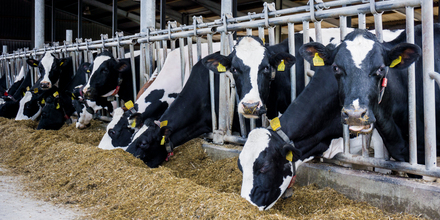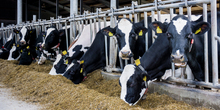Agriculture & Land Management
Our Work
Latest in Agriculture & Land Management
-

What contributions can agricultural emissions make to the proposed Effort Sharing Regulation?
New IEEP report finds the agriculture sector can significantly contribute to the EU’s climate commitments by reducing its non-CO2 emissions. It also finds these contributions can be delivered cost efficiently with environmental co-benefits without impacting production.
-
Ensuring the carbon sustainability of biomass
Ensuring the carbon sustainability of bioenergy requires a new approach in EU policy. This IEEP report spells out a different pathway to the one proposed by the European Commission in the recently released “winter package”.
-
The cascading use of woody biomass in the EU – challenges, opportunities and policy solutions
Improving the resource efficient use of wood through cascading the resource from one use to another, requires action throughout the wood flow. Current efforts focus on recovering and re-using waste wood but more could be done with the production and utilisation of wood processing residues and improving the balancing between the material and energy use of wood.
-
Mapping study on the cascading use of wood products
Promoting the cascading use of wood through policy is one approach to improve resource efficiency and increase the overall availability of wood for use in a variety of sectors.
-
CAP greening: what are its environmental prospects?
A significant injection of money was agreed for ‘green’ farming practices under the recent CAP reform. This report examines the environmental impact these measures are likely to have on the ground and concludes that Member States’ implementation choices appear to have much diminished the chances of the greening measures delivering significant additional environmental benefits.
-
New report: delivering low carbon transport fuels post 2020
How should EU policy support the transition to low carbon transport fuels post 2020? A new IEEP led report argues that future policies should be differentiated to tailor support towards specific objectives and technologies that offer the greatest potential for a low carbon future.
-
New report is out: delivering low carbon transport fuels post 2020
How should EU policy support the transition to low carbon transport fuels post 2020? A new IEEP led report argues that future policies should be differentiated to tailor support towards specific objectives and technologies that offer the greatest potential for a low carbon future.
-
The Manual: Chapter 13 - Sectoral policies
This is a chapter of IEEP’s Manual of European Environmental Policy. This chapter sets out the development of some of the most important links between EU environmental policy and other policy areas, such as agriculture, forestry, fisheries, transport, trade, and so on.
-
Ministers place biofuels in a policy vacuum
Energy Ministers today failed to agree reforms to the EU laws that promote the use of biofuels for transport. Current EU legislation is flawed and unfit for the purpose of delivering verifiable greenhouse gas emission reductions from the transport sector.
-
Alternative means of reducing CO2 emissions from UK road transport
Up to 2020 greater use of renewable electricity is the leading alternative to biofuels to reduce the carbon intensity of car and rail transport fuels. To realise this potential requires a mix of responses, including: increasing the decarbonisation of existing transport fuels; improving the energy efficiency of vehicles; and changing the way vehicles are used.
-
Systemic approach to adaptation to climate change and renewable energy harnessing (Biomass and Mini-hydro)
Biochar has the potential to both mitigate greenhouse gases, and to act as an adaptation measure in terms of responding to the impacts of climate change. Based on its compatibility with the appropriate soil properties, it could increase the resilience of soil to erosion.
Related
-

Debating the Future of The Common Agricultural Policy
The IEEP's platform to share thoughtful commentary and analysis on the future development of European agriculture and rural development policy.
Highlights
-

What contributions can agricultural emissions make to the proposed Effort Sharing Regulation?
New IEEP report finds the agriculture sector can significantly contribute to the EU’s climate commitments by reducing its non-CO2 emissions. It also finds these contributions can be delivered cost efficiently with environmental co-benefits without impacting production.
-

Ensuring the carbon sustainability of biomass
Ensuring the carbon sustainability of bioenergy requires a new approach in EU policy. This IEEP report spells out a different pathway to the one proposed by the European Commission in the recently released “winter package”.
-

The cascading use of woody biomass in the EU – challenges, opportunities and policy solutions
-

CAP greening: what are its environmental prospects?
